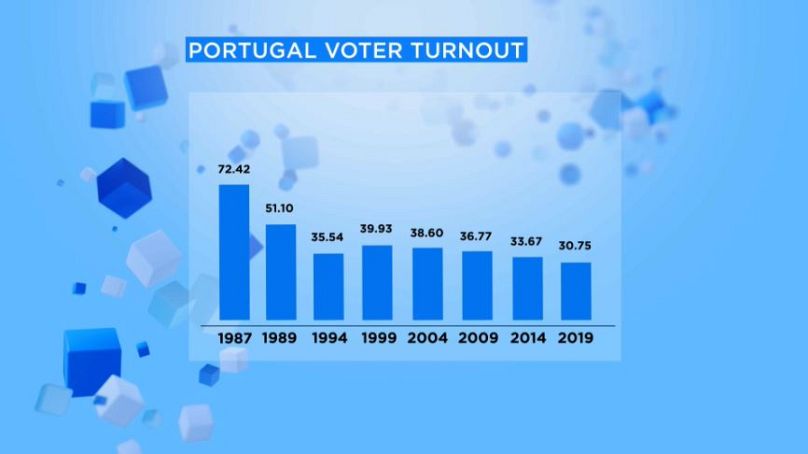The European elections typically see the lowest turnout among citizens in Portugal. Will the Portuguese follow the trend of the recent legislative elections and participate in voting on June 9th?
In the 2019 European elections, Portugal recorded its highest abstention rate of 68.6 percent since joining the European Union, contrasting sharply with the approximately 50 percent turnout across Europe.
 ADVERTISEMENT
ADVERTISEMENT
 ADVERTISEMENT
ADVERTISEMENT
Political dissatisfaction, as revealed in a survey released by the European Parliament at the time, was the main reason given for Portugal's record abstention rate of 68.6 percent in the European elections in May 2019.
However, there is optimism for a potential decrease in abstention during the 9 June elections, mirroring the trend seen in the recent legislative elections on 10 March, which boasted a turnout of 59.84 percent.
"The Portuguese feel European, they belong to Europe and they know the benefits that the European Union brings them, but then there's the question of connecting to the European institutions and understanding how they work," says Francisco Cordeiro de Araújo, guest assistant at the Faculty of Law of the University of Lisbon.
According to him, "This question is more difficult, because we're talking about institutions that are far from Portuguese territory, but which in recent years have somehow invested in different forms of communication, even through social networks".
"These results will take time to appear, but I feel that there is an increasing sense of responsibility on the part of those in Brussels and Strasbourg to get the message across and emphasise the importance of the EU," he adds.
Less than half of Portuguese citizens can name either a Portuguese MEP or the President of the European Commission, Ursula von der Leyen, according to a study by Francisco Manuel dos Santos Foundation's European Policy Barometer, indicating a lack of knowledge about the European Union as another reason for abstaining from voting.
In the run-up to the European elections, Portuguese young people, along with Romanians, stand out among the 27 member states in terms of voting intentions. Eurobarometer on Youth and Democracy estimates 77 percent of Portuguese individuals aged 18 to 30 plan to vote to elect the 21 Portuguese MEPs in the European Parliament.
Who stands to gain and who stands to lose due to abstention?
The European elections are likely to echo the rise of right-wing movements seen in national elections. Given the closeness of the two elections, most voters are expected to retain their existing convictions.
Francisco Cordeiro de Araújo, who teaches International Law, European Union Law, and Political Science at FDUL, believes that right-wing parties, especially those with increased representation in the national parliament and electoral popularity, will gain from these elections. He emphasizes that parties aligned with this political ideology, previously unrepresented, will particularly benefit.
The European polls indicate that the next elections could lead to a change in the composition of the European Parliament. Radical and populist parties on the left and right are expected to gain votes and seats, unlike the more moderate parties in the centre.
21 MEPs will be leaving Portugal again, but this time they could come from very different parties.
According to the latest poll by Catholic University for RTP, Antena 1, and Público newspaper, there's a statistical tie between Democratic Alliance (31 percent) and Socialist Party (30 percent), with the right-wing coalition holding a slight edge over the Socialists. The right-wing Chega party has emerged as the third major political force, with 15 percent of voting intentions.











